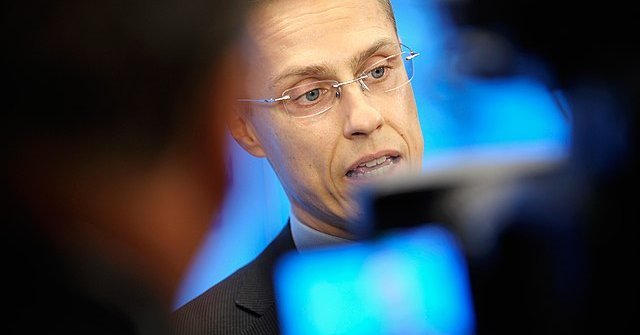Alexander Stubb is set to be the new President of the Republic following a close second round on the 11th of February. Stubb is a centre-right politician with longstanding pro-European and pro-Western views who started his political career as a member of the European Parliament.
His opponent in the second round was Pekka Haavisto, a moderate green politician who came in second for the third time this year, having lost twice to Niinistö, the current president.
Presidential elections in Finland take place every 6 years to elect the head of state of the country. The president has a mostly ceremonial function in Finland and they must renounce party membership upon taking office. Sauli Niinistö in particular cultivated the image of an apolitical “father of the nation” and came to enjoy great popularity, winning over 62% of the vote in the first (and only) round back in 2018. With the outcome of the 2018 elections being obvious, this has made 2024 the first actually competitive election since all the way back in 2012. Niinistö, having served two terms, was no longer eligible to run this year.
The most notable candidates in the first round were Olli Rehn, governor of the Bank of Finland and candidate of the agrarian Centre Party, Jussi Halla-aho, president of the parliament and candidate of the far-right Finns Party, Pekka Haavisto, Green League politician, former foreign minister and independent candidate, and Alexander Stubb, professor, former prime minister and candidate of the centre-right National Coalition Party.
Olli Rehn was a relatively neutral and inoffensive candidate who would likely have been similar to Sauli Niinistö and whom few had anything bad to say about, but who perhaps for the same reason failed to rouse enthusiasm or activate voters. He achieved a respectable 15% of the vote in the first round.
Jussi Halla-aho was the most divisive candidate of the elections, popular on the far-right, but marred by a history of racist remarks and hate speech controversies he was an intolerable candidate to those on the left, which encouraged tactical voting against him. If he had made it to the second round, he would likely have lost it due to the number of people willing to vote for practically anyone to prevent him from becoming president. His support in the first round was roughly 19%.
A wildcard of the election was Mika Aaltola, who had no prior political experience but headed the Finnish Institute of Foreign Affairs and gained visibility since the beginning of Russia’s invasion of Ukraine, some seeing him as well suited to the foreign policy-focused role of the president. Despite the initial media hype around him, skepticism ultimately prevailed and he reached a mere 1.46% of the vote.
Haavisto and Stubb made it to the second round with roughly 26% and 27% respectively. Both are considered to be relatively similar candidates with similar pro-European and international outlooks. Haavisto could be described as a calmer and more dovish option as compared to Stubb’s more hawkish foreign-policy stances, but these are relatively minor differences in approach for ultimately similar goals. This has made both candidates broadly acceptable to most Finns, but left a considerable minority feeling like neither candidate represented them. On both sides there was a sense that it wouldn’t make much of a difference which one of them won.
Haavisto’s open homosexuality drew some attention and likely contributed to him losing the second round. Many who voted for Stubb said that Haavisto’s sexuality was a part of their considerations, a testament to lingering homophobia in Finnish society and something which many supporters of both candidates saw as disappointing and something which should not have been considered relevant.
Election night as the votes were being counted both candidates emphasised that the other candidate was capable and that in either case Finland would have a good president. Ultimately Alexander Stubb narrowly won the election with 51.62% of the vote and a difference of under 100,000 votes to Haavisto. Stubb went on to congratulate his opponent for a strong campaign and thanked him for being an honourable opponent, making the elections overall a refreshingly civil affair.

Follow the comments: |
|
